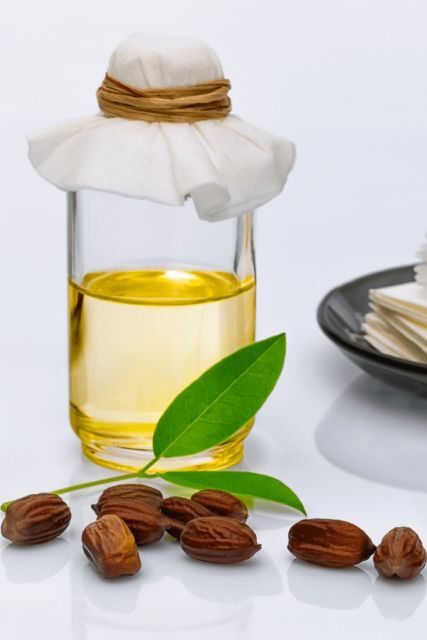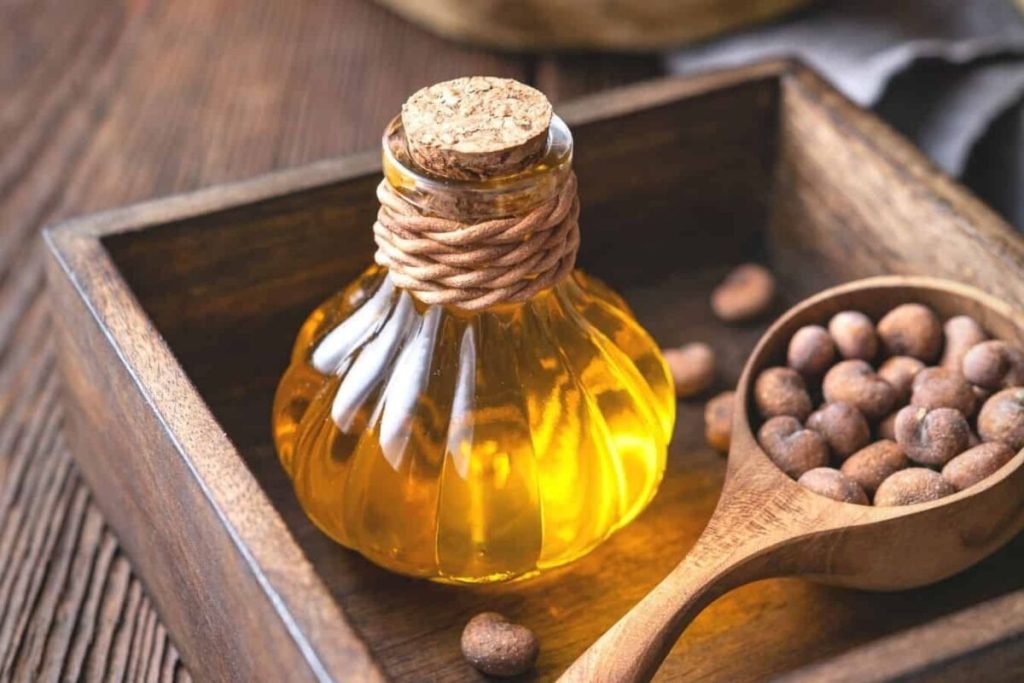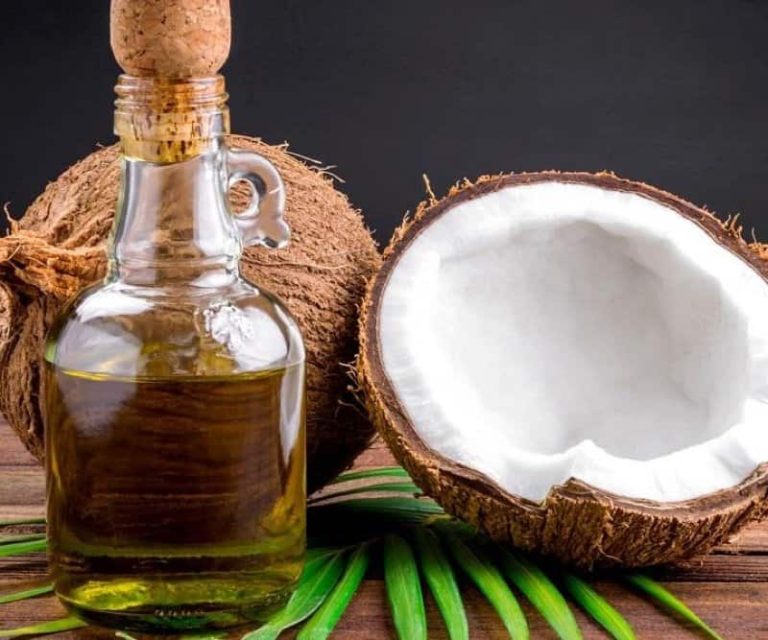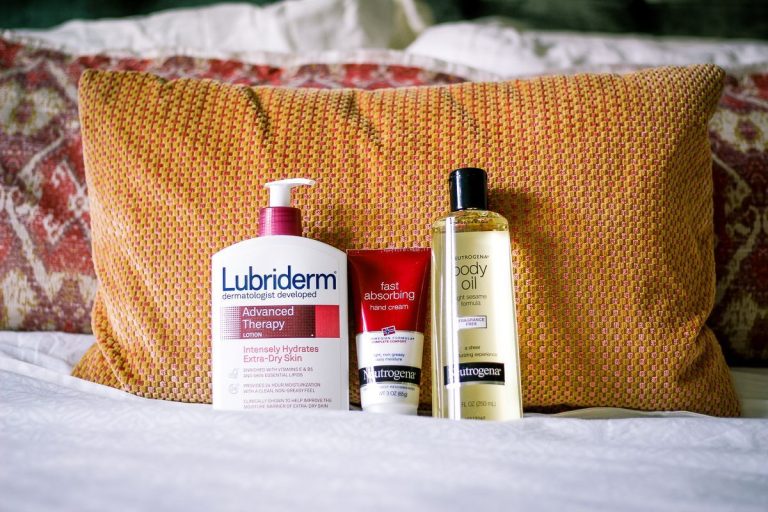Does Jojoba Oil Expire? How to Store It Properly
Jojoba oil has become one of the most popular plant-based oils in recent years, with people around the world using it as part of their skincare and haircare routines. But does jojoba oil expire? Can it go bad?
What Is Jojoba Oil?
Contents

Jojoba oil is not actually an oil, but a liquid wax that comes from the seeds of the jojoba plant (Simmondsia chinensis). The jojoba plant is native to the southwestern United States and northern Mexico.
Jojoba oil is unique in that its chemical structure resembles human sebum – the oil naturally produced by our skin. This makes jojoba oil easily absorbed and well-tolerated by most skin types.
Jojoba oil has become a staple ingredient in many skincare products including moisturizers, serums, cleansers, and more thanks to its stellar moisturizing abilities and anti-inflammatory properties. It’s also commonly used in hair products like shampoos and conditioners for its moisturizing effects.
Does Jojoba Oil Expire?
The shelf life of oils depends on various factors, including storage conditions, exposure to heat/light/air, and potential for contamination.
Unlike many other plant oils, jojoba oil is very stable and resistant to oxidation. This unique chemical structure gives jojoba oil an extraordinarily long shelf life. When stored properly, jojoba oil can last 2-5 years before going bad.
However, jojoba oil will eventually expire if not stored correctly. Heat, light, air exposure, and contamination will greatly accelerate the expiration process.
How to Tell If Jojoba Oil Has Gone Bad
As jojoba oil starts to expire, you may notice some changes:
- Change in color – Fresh jojoba oil is a light golden color. As it oxidizes, it darkens to a brown or amber hue.
- Change in scent – Good quality jojoba oil has little to no scent. Rancid jojoba oil will have a nutty, unappetizing smell.
- Change in texture – Fresh jojoba oil has a smooth, liquid consistency. Spoiled jojoba oil may become thicker or clump up.
If you notice any of the above signs, it’s best to discard the jojoba oil and get a fresh bottle. Using expired jojoba oil not only reduces its efficacy, but can also lead to skin irritation in some cases. Don’t take chances with rancid oils!
How to Store Jojoba Oil Properly

Follow these simple tips to help maximize the shelf life of your jojoba oil:
Store in an Opaque, Airtight Container
Light and air exposure are jojoba oil’s worst enemies. Store your oil in a dark glass or plastic bottle to limit light exposure. Make sure the bottle has a tight seal to prevent air from sneaking in.
Keep in a Cool, Dark Place
Heat and light accelerate the oxidation process. Store jojoba oil in a cool cupboard or pantry, away from any windows or heating elements. The refrigerator is also an option, but not strictly necessary.
Avoid Contamination
Always use clean, dry fingers or utensils when scooping out jojoba oil to avoid introducing bacteria and other contaminants. Never pour unused oil back into the bottle – this risks spoiling the remaining oil.
Buy in Smaller Quantities
The more oil in the bottle, the longer it takes to use up. Stick to smaller bottles (4 oz or less) to ensure you can use up the oil while it’s still fresh. If buying in bulk, split into smaller bottles right away.
The Origins of Jojoba Oil
Jojoba shrubs are native to the Sonoran and Mojave deserts of southwestern North America and northern Mexico. Indigenous tribes like the Apache and Navajo traditionally used jojoba oil for treating wounds and other skin conditions.
The first commercial cultivation of jojoba began in the 1970s in Israel and other desert regions. Today, the top jojoba oil producers are the United States, Argentina, Australia, and Mexico.
How Is Jojoba Oil Made?
Jojoba oil is derived from the small, oval-shaped seeds inside the jojoba plant’s fruit. These seeds contain 40-60% oil by weight.
To extract the oil, the jojoba seeds are cleaned and then pressed to squeeze out the liquid wax. This produces the crude, raw oil. Unrefined oil maintains the natural color, aroma and nutrients.
The oil can be further refined via filtering, bleaching, and other processes. This removes any impurities and results in a product that is transparent, odorless and has an extended shelf life.
Most skincare products use refined jojoba oil because of its improved stability, although some prefer unrefined for its more natural composition.
Why is Jojoba Oil so Popular?
Jojoba oil offers several benefits that make it a stand-out ingredient, especially for skincare:
- Powerful moisturizer – Similar to our own sebum, jojoba oil is readily absorbed and locks in hydration. It leaves skin feeling soft without being greasy.
- Non-comedogenic – Doesn’t clog pores, so suitable for acne-prone skin.
- Soothing properties – Helps calm inflammation and redness.
- Antioxidant effects – Contains vitamins E and B which fight free radicals.
- Long shelf life – The chemical stability of jojoba oil allows it to stay fresh for years.
- Versatile uses – Can be used on face, body, hair, lips, etc. Makes a great carrier oil for essential oils.
With its stellar safety profile and moisturizing abilities, it’s no wonder jojoba has become a skincare superstar ingredient.
Is Jojoba Oil Safe for Everyone?
Jojoba oil is generally well-tolerated, even by those with sensitive skin. It rates extremely low on the commedogenic scale and is unlikely to clog pores.
However, it’s always a smart idea to do a patch test before applying any new product all over your face or body. Simply apply a couple drops to your inner arm and wait 24-48 hours to see if any reaction occurs.
As with any ingredient, jojoba oil can provoke an allergic response in some individuals. Those with known sensitivities to nuts should use caution, as jojoba is in the same plant family as nuts.
Jojoba oil is not recommended for babies or young children. It’s best to avoid jojoba if you’re pregnant or breastfeeding unless approved by your doctor.
Does Jojoba Oil Stain?
In most cases, jojoba oil does not stain skin or fabrics. Since it has a light, golden color and absorbs quickly into skin, it typically will not leave behind staining residue.
However, as with any oil, staining could occur if a large quantity comes into contact with fabric or furniture and is not promptly cleaned. Blot away excess oil immediately using a clean towel if jojoba spills on clothes or upholstery.
So in summary – when stored correctly, jojoba oil can easily last 2-5 years before going bad thanks to its unique chemical stability. Keep your jojoba oil in a cool, dark place in an airtight container to maximize its shelf life. And be sure to replace it if you notice any changes in color, smell, or texture!

Founded by Sophia Rodriguez, IGXO Cosmetics is a PETA-certified, cruelty-free, and vegan makeup brand.





